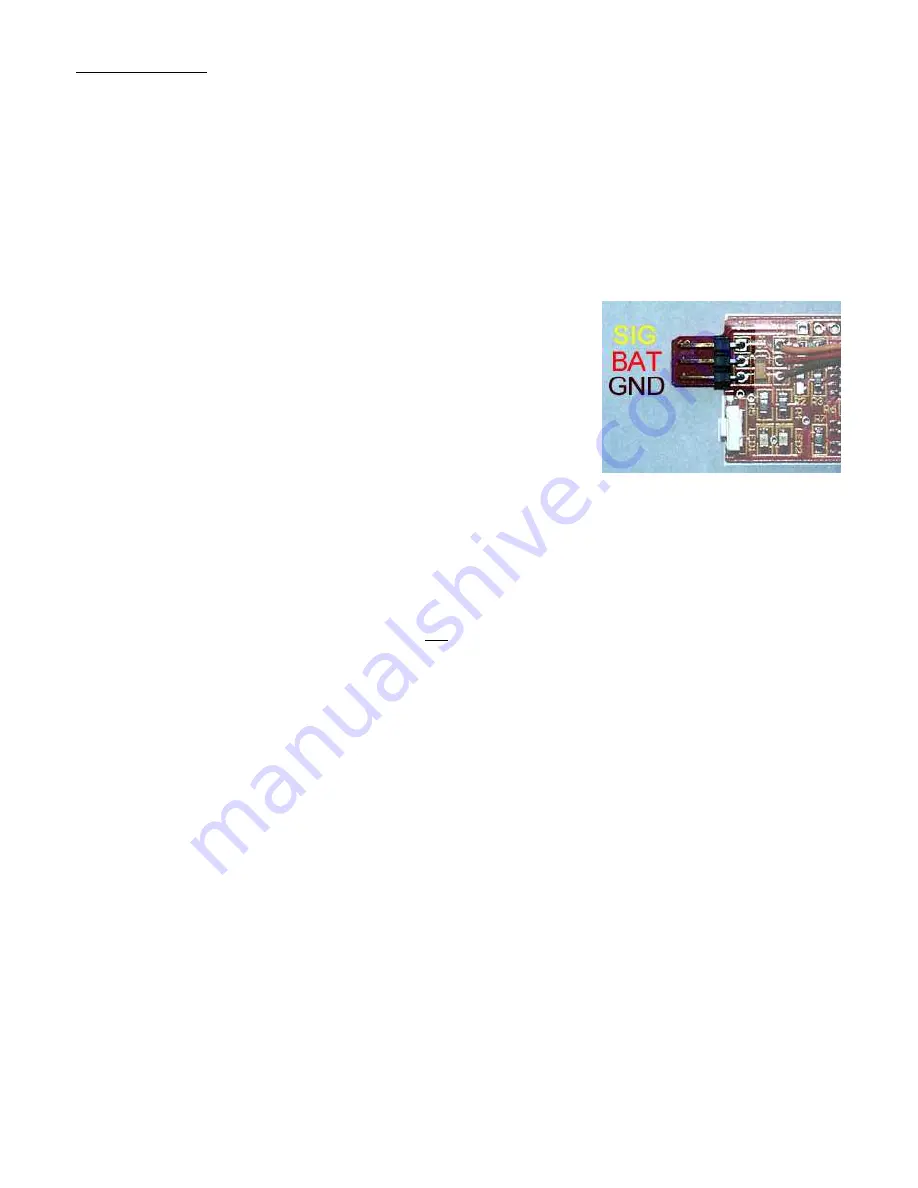
ShutterBug Pro © 2007-2013
Page 3
Sep-15-2013
Figure 6, Servo Connector
INSTALLATION
ShutterBug Pro is compatible with R/C servo-activated shutters and direct (hardwired)
connections. The servo method is the most popular because it does not require camera
disassembly or modification.
S
ERVO
M
ETHOD
As mentioned, a standard R/C servo can be controlled from ShutterBug Pro’s timer
feature or it can be remotely activated using a model R/C system. Servos are available
from R/C model hobby shops. For example, the tiny Hitec HS-55 is low cost and a
popular choice. How you mount it is up to you.
To install the servo on ShutterBug Pro, simply plug it into
the 3-pin connector. The servo cable’s Signal (yellow, or
white) wire is positioned so that it is closest to the outside
edge. The servo is then mounted on the camera with
adhesive or double sided foam tape. The goal is to have
the servo arm press the shutter button, so your
installation should allow that.
D
IRECT
C
ONNECT
M
ETHOD
Note: The direct connection method requires delicate electronic soldering, and difficult
modifications to your digital camera that will void the warranty. You, and only you, are
responsible for any damage that may occur in your attempt to modify your camera. Do this
installation at your own risk. Please note that we are unable to offer specific instructions on how
to modify your camera.
The ShutterBug Pro can electronically connect to some digital photo cameras. Its direct
connect interface uses two solid state “switches.” The Stage-1 switch is for focus and
Stage-2 is for shutter (snapshot). The switches are optically isolated, which provides
electrical protection to your camera.
ShutterBug Pro’s direct connection provides the electrical closure to the contacts on your
camera’s shutter button. Stage-1 (focus) is switched-on first, followed by Stage-2
(shutter). All switches are turned off after a short final delay. Total focus/shutter activation
time will depend on the settings you have chosen (please see System Programming
section).
Содержание ShutterBug Pro
Страница 14: ......
Страница 15: ...Programming Summary ...
















